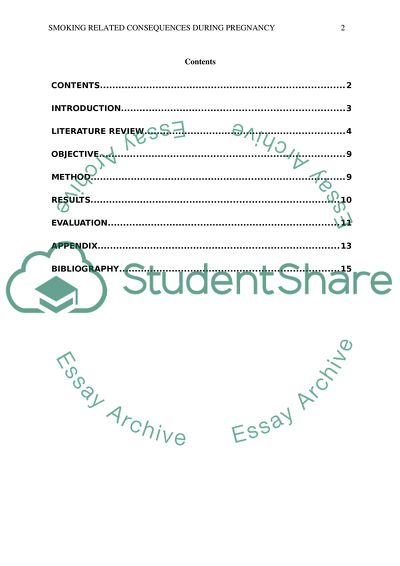Cite this document
(Smoking During Pregnancy Causes Complications to Mothers and Unborn Coursework Example | Topics and Well Written Essays - 2500 words - 1, n.d.)
Smoking During Pregnancy Causes Complications to Mothers and Unborn Coursework Example | Topics and Well Written Essays - 2500 words - 1. https://studentshare.org/health-sciences-medicine/1805071-research-project-human-relations-smoking-causes-complications-to-both-the-mother-and-the-unborn-child-during-pregnancy
Smoking During Pregnancy Causes Complications to Mothers and Unborn Coursework Example | Topics and Well Written Essays - 2500 words - 1. https://studentshare.org/health-sciences-medicine/1805071-research-project-human-relations-smoking-causes-complications-to-both-the-mother-and-the-unborn-child-during-pregnancy
(Smoking During Pregnancy Causes Complications to Mothers and Unborn Coursework Example | Topics and Well Written Essays - 2500 Words - 1)
Smoking During Pregnancy Causes Complications to Mothers and Unborn Coursework Example | Topics and Well Written Essays - 2500 Words - 1. https://studentshare.org/health-sciences-medicine/1805071-research-project-human-relations-smoking-causes-complications-to-both-the-mother-and-the-unborn-child-during-pregnancy.
Smoking During Pregnancy Causes Complications to Mothers and Unborn Coursework Example | Topics and Well Written Essays - 2500 Words - 1. https://studentshare.org/health-sciences-medicine/1805071-research-project-human-relations-smoking-causes-complications-to-both-the-mother-and-the-unborn-child-during-pregnancy.
“Smoking During Pregnancy Causes Complications to Mothers and Unborn Coursework Example | Topics and Well Written Essays - 2500 Words - 1”. https://studentshare.org/health-sciences-medicine/1805071-research-project-human-relations-smoking-causes-complications-to-both-the-mother-and-the-unborn-child-during-pregnancy.


